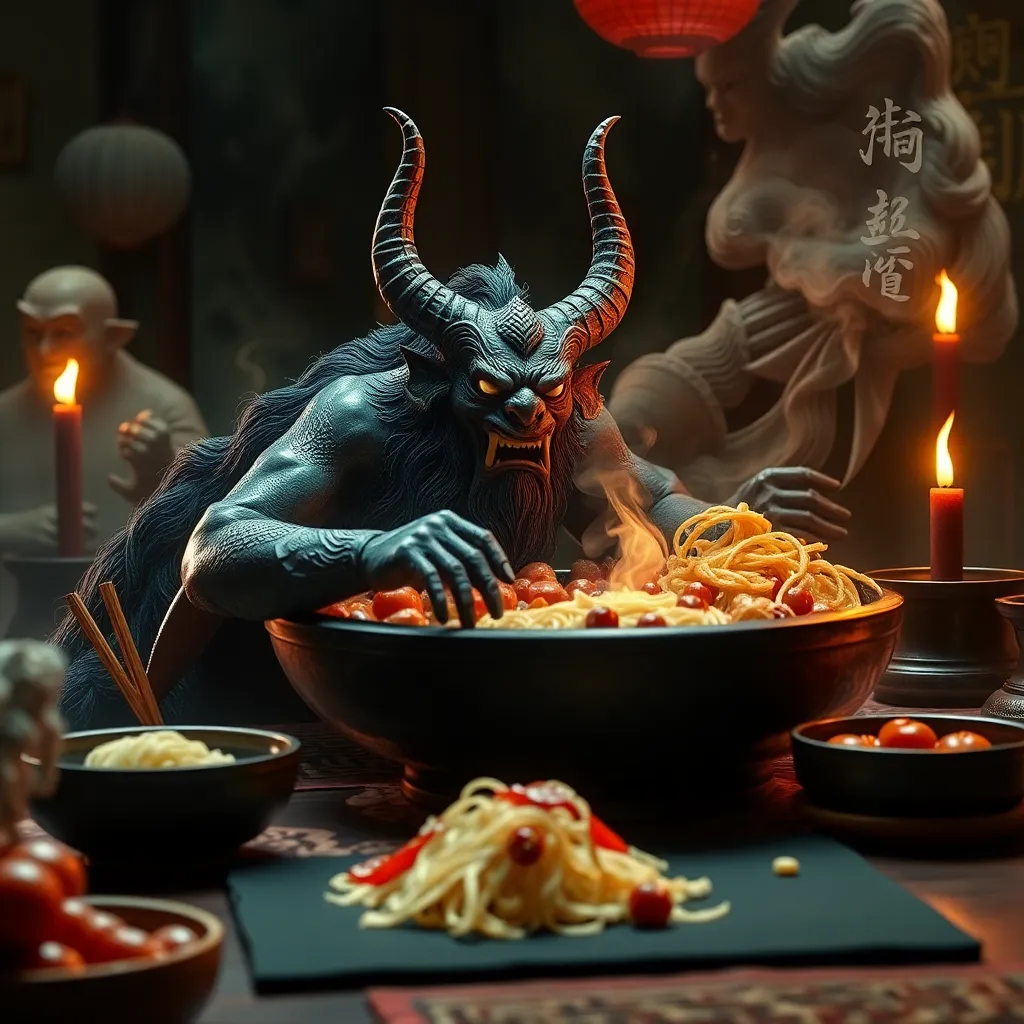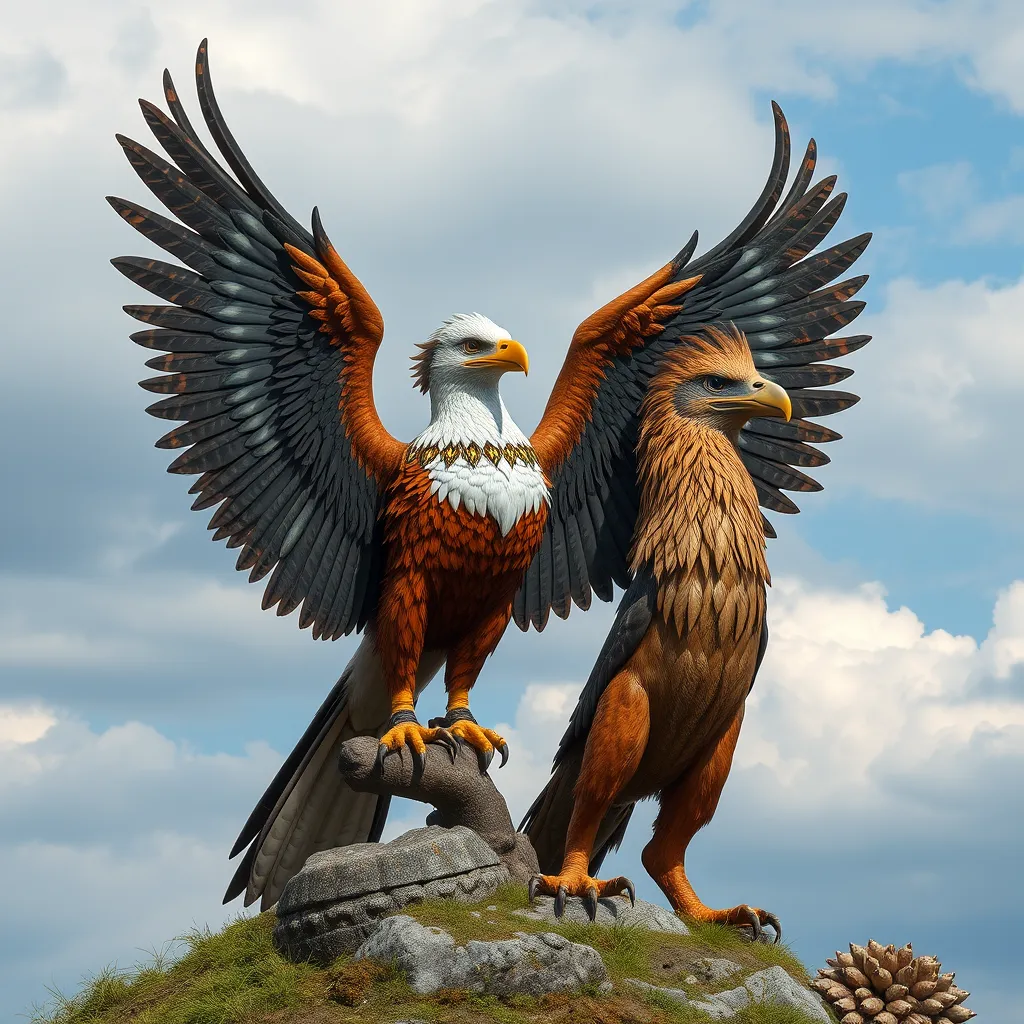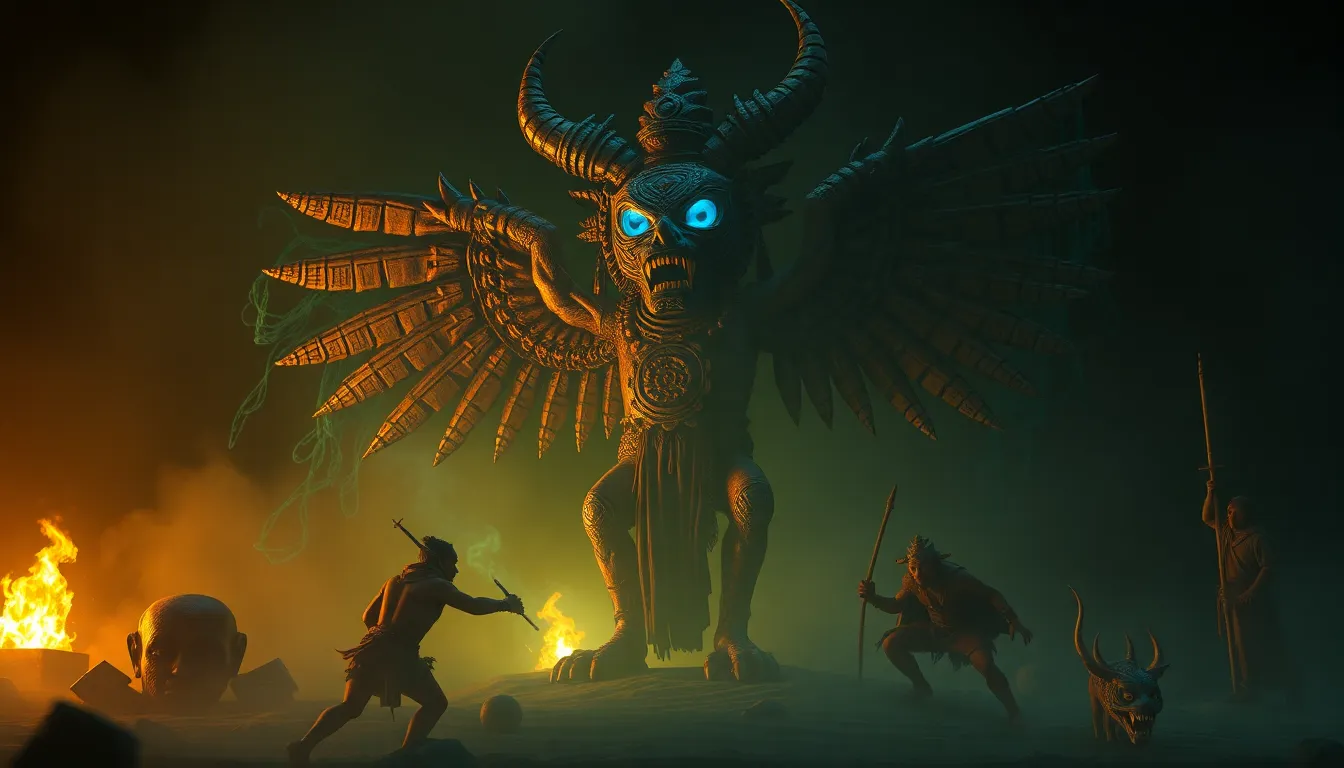The Oni’s Feast: Examining the Symbolism of Oni in Chinese Mythological Cuisine
I. Introduction
The concept of Oni in Chinese mythology embodies complex and multifaceted meanings that reflect both cultural fears and reverence towards supernatural beings. Traditionally seen as malevolent spirits, Oni are significant figures that invoke both terror and respect within folklore.
In Chinese culture, cuisine serves as a crucial medium for expressing cultural identity, moral lessons, and historical narratives. Food is not merely sustenance; it is imbued with symbolic meanings that connect individuals to their heritage.
This article aims to explore the intersection of Oni and Chinese culinary traditions, examining how the symbolism of these mythical beings manifests within the context of food and feasting.
II. The Cultural Significance of Oni
A. Historical origins of Oni in Chinese folklore
The origins of Oni in Chinese folklore can be traced back to ancient myths and stories that depict them as spirits often associated with chaos, mischief, and even malevolence. While the term “Oni” is predominantly used in Japanese culture, similar figures exist within Chinese mythology under different names, such as “gui” (鬼) or “yao” (妖).
B. Characteristics and representations of Oni in mythology
Oni are typically portrayed as fearsome creatures with horns, sharp claws, and an intimidating presence. They symbolize the darker aspects of human nature and societal fears, often serving as warnings against immoral behavior.
C. The role of Oni in moral and ethical lessons
In various folktales, Oni often embody the consequences of straying from moral paths. They serve as cautionary figures, teaching lessons about virtue, respect, and the importance of adhering to societal norms.
III. Symbolism of Food in Chinese Mythology
A. Overview of food symbolism in Chinese culture
Food in Chinese culture is rich with symbolism. Different dishes and ingredients are associated with various meanings, often relating to prosperity, health, and familial bonds. For instance, fish represents abundance, while dumplings symbolize wealth.
B. The connection between food and spirituality
Food is seen as a bridge between the physical and spiritual realms. Offerings made to ancestors and deities often include specific dishes that hold significance, reflecting respect and gratitude.
C. Feast as a ritual: Celebrations and offerings
Feasts are integral to celebrations, whether for festivals, weddings, or ancestral memorials. They serve as communal gatherings that reinforce social bonds and cultural traditions.
IV. The Oni’s Feast: Mythological Context
A. Description of traditional feasts associated with Oni
In the context of Oni, feasts may include offerings to appease these spirits or to celebrate their stories. Such feasts often feature a mix of sweet and savory dishes, symbolizing the dual nature of Oni.
B. The role of Oni in various mythological narratives involving feasts
Mythological narratives often depict feasts where Oni play a central role, either as guests or as instigators of chaos. These tales explore themes of indulgence, excess, and the fine line between celebration and transgression.
C. Key ingredients and dishes featured in the Oni’s Feast
- Rice: Symbolizing prosperity and abundance.
- Meat dishes: Representing the earthly pleasures that Oni enjoy.
- Sweet pastries: Often used to placate spirits and soften their wrath.
- Fruits: Symbolizing fertility and the cyclical nature of life.
V. Thematic Analysis of Oni and Culinary Practices
A. Duality of Oni as both a malevolent and protective figure
The dual nature of Oni allows them to be perceived as both threats and guardians. In culinary practices, this duality is reflected in the types of dishes prepared for celebrations involving Oni.
B. The juxtaposition of fear and reverence in culinary representations
Culinary representations of Oni evoke a mix of fear and reverence. Dishes may be prepared to honor these spirits, reflecting a respect for their power while simultaneously acknowledging their potential for chaos.
C. How Oni-inspired dishes reflect societal views on good and evil
Dishes inspired by Oni often mirror societal views on morality. Ingredients associated with goodness and virtue may be combined with those that symbolize temptation and excess, creating a complex culinary narrative.
VI. Modern Interpretations of Oni in Cuisine
A. Contemporary culinary adaptations inspired by Oni
In modern cuisine, chefs are increasingly drawing inspiration from mythological themes, including Oni. This has led to innovative dishes that blend traditional ingredients with contemporary culinary techniques.
B. Fusion dishes and their cultural significance
Fusion cuisine that incorporates Oni motifs often reflects a blend of cultural histories and culinary practices. These dishes can serve as a medium for storytelling, allowing diners to connect with the mythological past.
C. The resurgence of interest in mythological-themed cuisine
The recent resurgence of interest in mythological-themed cuisine highlights a growing appreciation for culinary narratives. This trend emphasizes the role of food as a storytelling medium that preserves cultural heritage.
VII. Case Studies: Regional Variations of Oni-Inspired Cuisine
A. Regional differences in the interpretation of Oni and associated dishes
Regional variations in the interpretation of Oni lead to diverse culinary practices. Different areas may emphasize particular ingredients or cooking methods that reflect local customs and beliefs.
B. Case studies of specific festivals or celebrations featuring Oni
Many festivals celebrate Oni, such as the Hungry Ghost Festival, where food is offered to appease wandering spirits. These events showcase the unique culinary traditions of different regions.
C. Interviews with chefs or cultural historians on local practices
Insights from chefs and cultural historians reveal how local practices surrounding Oni-inspired cuisine have evolved, shedding light on the ongoing dialogue between mythology and culinary arts.
VIII. Conclusion
The exploration of the symbolism of Oni in Chinese culinary traditions reveals the deep connections between mythology and food. The intricate narratives surrounding Oni remind us of the lessons embedded in cultural practices, where food serves as a medium for storytelling.
As we reflect on these themes, it becomes clear that the evolution of mythological motifs in cuisine continues to enrich cultural identity and understanding. The cultural importance of food as a narrative medium in mythology underscores its role in preserving traditions and fostering community.



